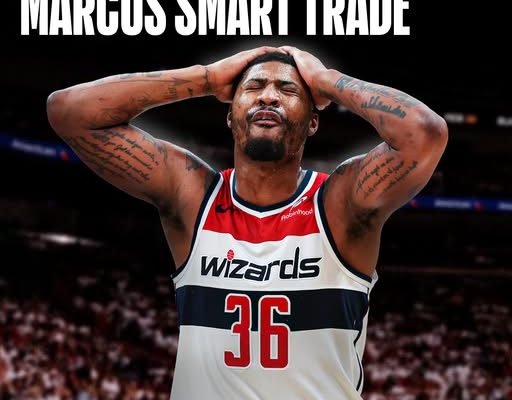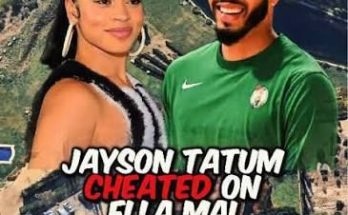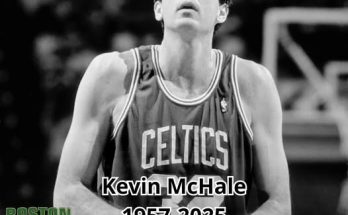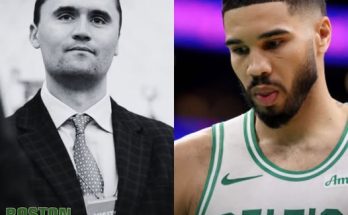Marcus Smart, one of the most revered and relentless defenders in the modern NBA, has always been known more for grit than glamour. A cornerstone of Boston Celtics basketball for nearly a decade, Smart’s presence was synonymous with heart, hustle, and hard-nosed defense. But the NBA is a business first, and that truth became starkly clear again this offseason when reports emerged that the veteran guard was made available in the trade market before eventually being bought out by the Washington Wizards. What unfolded with Smart’s departure, attempted trades, and eventual buyout paints a picture not just of one man’s journey, but also of a league constantly in motion, evolving and sometimes brutal in its treatment of even its most loyal soldiers.
Smart’s path to this point has been anything but conventional. Drafted sixth overall by the Celtics in 2014, the former Oklahoma State standout quickly built a reputation as one of the fiercest perimeter defenders in the league. He wasn’t the flashiest player, and his shot selection often drew criticism, but his tenacity, leadership, and basketball IQ were beyond question. Over time, Smart earned the respect of teammates, opponents, and fans alike. In 2022, he was honored as the NBA’s Defensive Player of the Year, becoming the first guard to win the award since Gary Payton in 1996. It was a validation of sorts, a league-wide recognition of what Celtics fans had known for years—Marcus Smart was a game-changer, a disruptor, a leader.
But basketball, especially in the modern NBA, is often about fit, timing, and financial flexibility. When Boston made the stunning decision to trade Smart to the Memphis Grizzlies in a three-team deal that sent Kristaps Porziņģis to the Celtics, it shook the core of a franchise that had long leaned on Smart’s defensive instincts and emotional leadership. For many, the trade represented an end of an era. Yet, for Smart, it was an opportunity to embrace a new chapter with a team that desperately needed his experience and toughness. The Grizzlies, a rising power in the West with young stars like Ja Morant and Jaren Jackson Jr., viewed Smart as a stabilizing force—someone who could bring structure and a winning mentality.
Unfortunately, fate had other plans. Smart’s stint in Memphis was marred by injuries and inconsistent team performance. He played in just 20 games before being sidelined with a finger injury, and as the Grizzlies’ season unraveled due to Ja Morant’s suspension and a slew of injuries, the team shifted its focus toward a younger core. With Memphis no longer seeing Smart as a long-term fit and seeking roster flexibility, they made the difficult decision to part ways with him. The Washington Wizards, deep in the throes of a rebuild, acquired Smart in a deal aimed primarily at acquiring veteran leadership and matching salaries.
However, Smart’s stay in Washington was brief and uneventful. The Wizards, clearly focused on developing their young talent and maintaining cap flexibility, reportedly made Smart available in the trade market almost immediately after acquiring him. Despite his pedigree and championship experience, there was little traction on the trade front. Several contending teams expressed interest, but Smart’s contract—a sizable one by NBA standards—proved a roadblock for franchises with limited cap room or hesitation to commit long-term to a veteran guard who had battled injuries the previous season.
The market’s cool reception was not necessarily an indictment on Smart’s abilities. Quite the contrary—teams still saw him as a valuable contributor, especially on the defensive end. But the financial constraints of the new collective bargaining agreement and the league’s ongoing shift toward youth and offensive versatility made finding a trade partner more complicated than expected. Instead of waiting indefinitely for the right deal or forcing Smart into a situation where he might not be fully utilized, the Wizards and Smart’s representatives agreed to a buyout.
The buyout, while bittersweet, provides Smart with an opportunity to write the next chapter of his career on his own terms. He now becomes an unrestricted free agent, free to sign with any team of his choosing. Contenders are likely to line up quickly. The appeal of a battle-tested veteran with a reputation for leaving everything on the court cannot be overstated, especially for teams with championship aspirations. Smart has made a career out of doing the little things that don’t always show up in the box score—diving for loose balls, drawing charges, making the extra rotation on defense. He’s the kind of player that every coach wants in the locker room and on the floor when the game is on the line.
There is also an emotional component to Smart’s journey. For years, he was considered the heart and soul of the Celtics—a city and fanbase that embraced him with open arms. His departure from Boston wasn’t just a basketball move; it was a cultural shift. Fans, analysts, and even former teammates publicly voiced their disappointment in how his tenure ended. That lingering affection and admiration might factor into Smart’s next move. A return to Boston is unlikely given the current roster construction, but the league’s landscape is fluid, and stranger reunions have happened. More realistically, teams like the Miami Heat, Milwaukee Bucks, Golden State Warriors, or Los Angeles Lakers could make a strong push to bring Smart aboard, offering him a chance to contribute on the biggest stage while mentoring younger players and solidifying defensive rotations.



